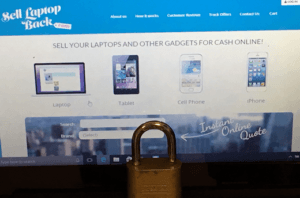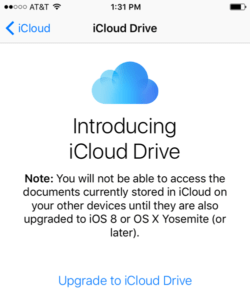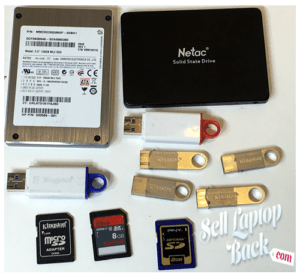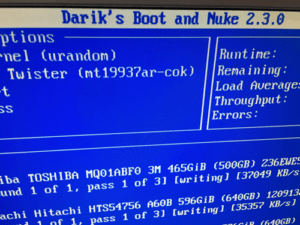How To Protect Data On Your Laptop And Phone
Protecting data on your computer and phone is very important. That’s because all information is being digitized and transferred over the Internet. Thanks to the process all data is available everywhere in a blink of an eye. Unfortunately the information is accessible not only to you and collecting it agencies. Your data may also be accessed and stolen by hackers and the results can be very harmfull. Everybody is familiar with terms like identity theft that could impose legal and financial risks.

Viruses
To avoid or at least lower the risk you want to be sure to use only confirmed sources when transferring and backing up your data. Take care of safety by not letting any viruses infect your devices. Viruses can allow third party access and transfer of your data without your consent. The best way to avoid that is not to access shady and poor quality websites. Do not open attachments in spam emails. They do repeatedly contain some kind of a virus written to steal your bank account access and your confidential personal data. If something gets installed in your system uninstall it and scan your computer with antivirus software.

Antivirus
Installing and running an antivirus is a must. When choosing antivirus software don’t rely on TV advertisements. Better do quick research online and check what real users recommend. People have the best opinion based on everyday use, and most have no interest in not telling you the truth. The truth is that often free open source software is much better than paid one. Purchased antivirus is focused on getting your money rather than on protecting you. We find a bitdefender that can be downloaded for free very useful and effective. It is also very quiet not showing until there is a real threat.
It’s commonly believed that MacBooks and all Apple’s environment have less viruses. I know it from my own experience. Now, that I use a Windows based computer at work and I don’t visit low quality websites, my PC is running fine. I use my iPhone 6S after work for the Internet and it does a great job. I rarely use my laptop for special tasks.
![]()
Today we will talk about simply protecting yourself from losing your data from your computer and phone in case they fail.
Back up
First and foremost back up your data. The most convenient and frequent are cloud based back ups. Basic cloud storage can be complementary with a purchase of a phone, laptop or a different service. Free cloud has limited space and persuades eventual upgrade to a bigger paid volume.
Auto back ups
Automatic back ups for your pictures are underappreciated until you lose your phone. Before, every time you lost your phone you also lost your pictures and music, unless you manually transferred them over to your PC or iTunes. Now with automatic wireless back ups you never have to worry again. Apple’s and other known clouds are very secure.

Cloud vs physical storage
Besides Internet cloud storage there are more choices for backing up your information. You can use external devices such as hard drive, flash drive or even a SD Card. In the past you would burn your data onto CD or DVD, but modern laptops are seldom equipped with optical drives.
The pros of using external devices are obvious. You have access to your data without the need of connection to the web. At the same time nobody else can see your info without physically connecting to your external drive. Over the last couple of decades storage devices shrank to very nominal sizes and can be stored virtually anywhere.
Cons of physical storage are of course the inconvenience of manual operation. That’s eliminated in case of use of automatic cloud back ups.
To ensure proper performance of your external storage devices follow instructions especially when ejecting after the work is done. Improper shutting down could lead to directory corruption and data loss. It’s advised to not to move external storage devices when in use. Mechanical damage can lead to data loss as well. Another step in prevention of mechanical damage is keeping your computer and external drive from overheating. Leave adequate space around your laptop for air circulation and cooling.

When to back up
Definitely back up your data prior to performing any system upgrade. System updates can cause information loss due to errors. Your data could also disappear due to power issues so buying an UPS (battery backup) is a good idea. Uninterrupted power supplies aren’t expensive and can save you time and headache in case of power shortage. When you start hearing noises from your laptop’s hard drive compartment it’s a signal that the drive is failing and that you should back up your data asap. Information on a defective hard drive can be recovered but the price can hurt Back up will save you money and the hassle.

Treat your phone like your personal hard drive and back it up before you lose it or break it. Broken display on your phone won’t let you use your pass-code and unlock it. First thing your iTunes will ask it to unlock your device with the pass-code. This could prevent you from downloading your data if you don’t use cloud back ups. On the other hand you want to pin lock your phone locked in case of an event when it gets stolen.
Summary
We hope you understand the importance of protection for your data and keeping it from leaking into wrong hands. It is not so hard to keep it safe if you follow our instructions. Don’t let anyone you don’t trust to access your computer whether in person or remotely. If your computer acts weird after opening certain webpage leave it immediately. Also clean cookies that could remain after the visit. At last but not least scan your laptop with an antivirus program. Don’t let any software or even update install on your computer without fully understanding where it came from and what it’s doing.
Unfortunately cybercrime is growing with the blooming of the Internet. If you’re planning on selling your computer ideally you should use Dban software to permanently erase your personal data.